SearchGPT AI integrates with web browsers to cite sources, improving factual accuracy and providing reliable information. This tool is built upon the foundation of previous GPT models, leveraging advanced natural language processing to deliver precise search results.
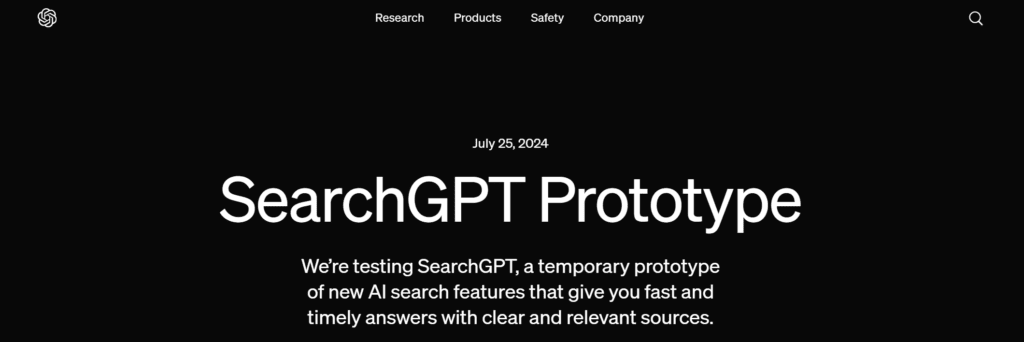
How to Use SearchGPT
The first thing to do is to join the WaitList and get accepted into the prototyping version as tested:
To join the waitlist for SearchGPT, visit OpenAI’s SearchGPT page. Look for the “Join Waitlist” button prominently displayed on the page. Click on it and fill out the required information, such as your name and email address. Submitting this form will add you to the waitlist, and you will be notified via email when access becomes available. Ensure you check your email regularly for updates and further instructions from OpenAI.
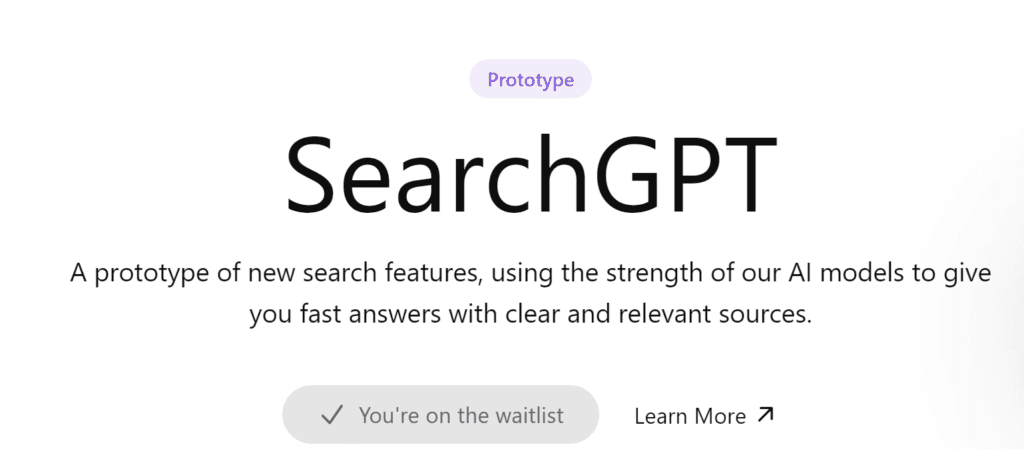
Access is limited. If selected, you’ll receive an emai
Once you application has been approved:
- Access SearchGPT: Navigate to the OpenAI platform and select the SearchGPT tool.
- Input Your Query: Type your question or search term into the input box.
- Review Results: Browse through the responses and check the cited sources for more detailed information.
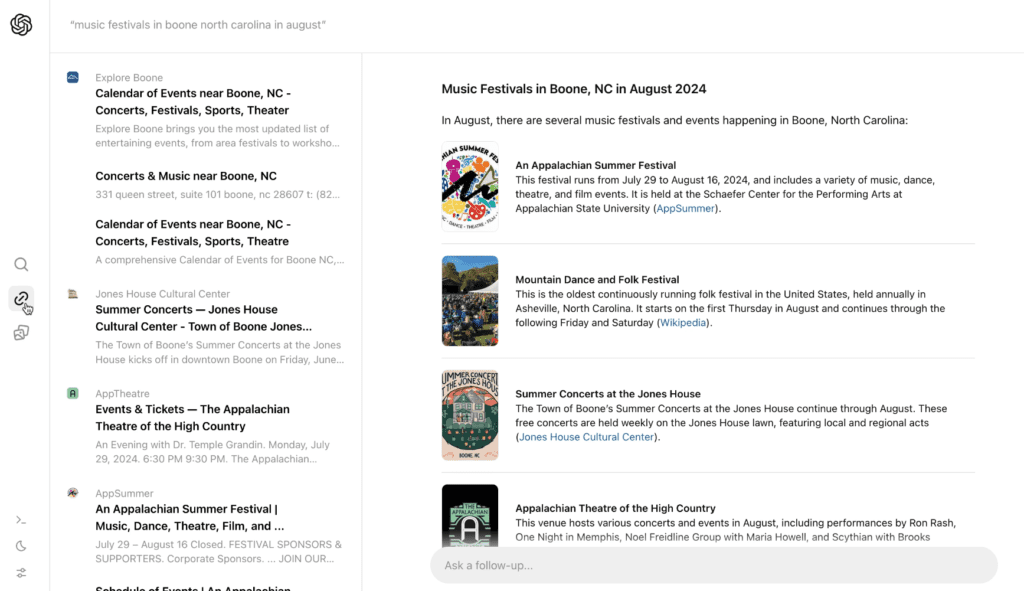
Pros
- Accurate Responses: SearchGPT aims to reduce the spread of misinformation by citing reliable sources, ensuring that the information provided is accurate.
- Contextual Understanding: The tool understands complex queries and provides answers that consider the context, making it more effective than traditional search engines.
- Integration with Web Browsers: It works seamlessly with web browsers, enhancing the search experience by fetching and displaying relevant information from the internet.
Cons
- Occasional Errors: Despite its advancements, SearchGPT can still make mistakes, especially with ambiguous queries.
- Dependence on Source Reliability: The accuracy of responses depends on the reliability of the cited sources, which can sometimes be challenging to verify.
- Limited Deployment: As a prototype, its deployment and functionality might be limited compared to fully developed search engines.
Pricing
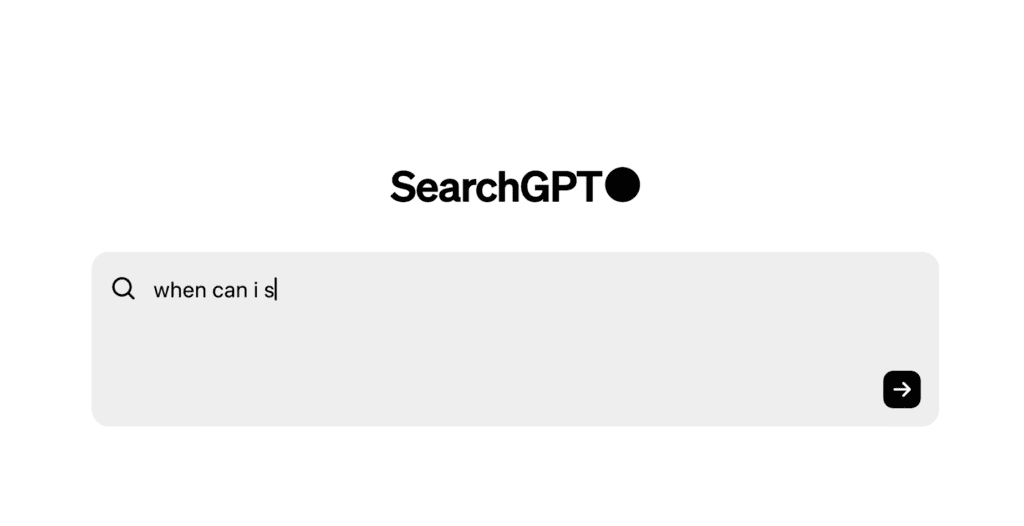
As of now, SearchGPT is in the prototype stage and is available for free. Future pricing models have not been disclosed but may include subscription-based options similar to other OpenAI services.
Use Cases
- Academic Research: Ideal for students and researchers needing accurate information with reliable citations.
- Professional Use: Useful for professionals who require precise data and sources for reports and presentations.
- General Knowledge: Perfect for anyone looking to enhance their understanding of various topics with detailed and accurate information.
FAQs
- What makes SearchGPT different from traditional search engines?
- It uses advanced AI to understand the context and nuances of your queries, providing more accurate and detailed answers along with cited sources to ensure reliability.
- Is SearchGPT available for commercial use?
- Currently, it is in the prototype stage and is primarily available for individual use. Commercial applications may be considered in future releases.
- How does SearchGPT ensure the accuracy of its answers?
- It cites reliable sources for its answers, allowing users to verify the information. This approach aims to reduce misinformation and improve factual accuracy.

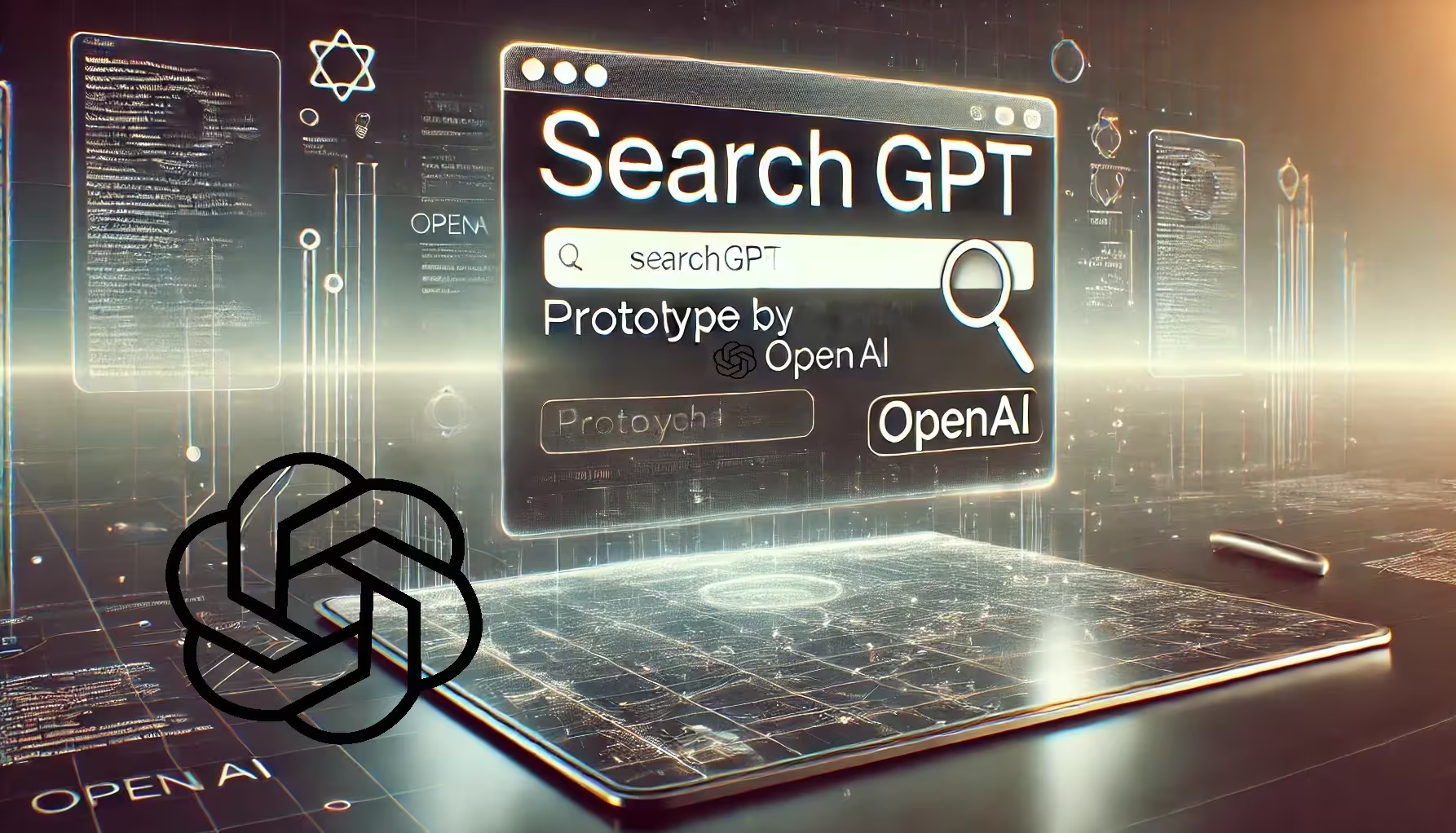
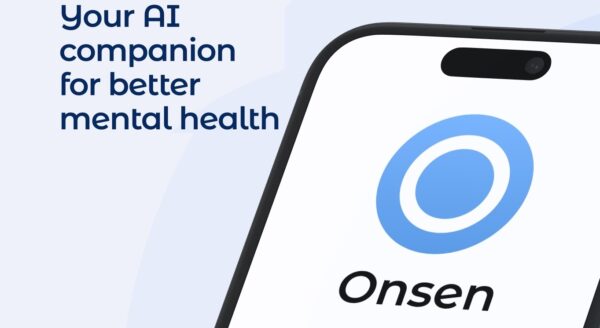

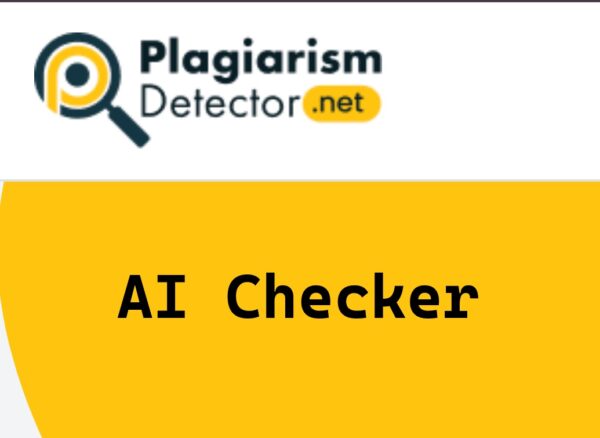



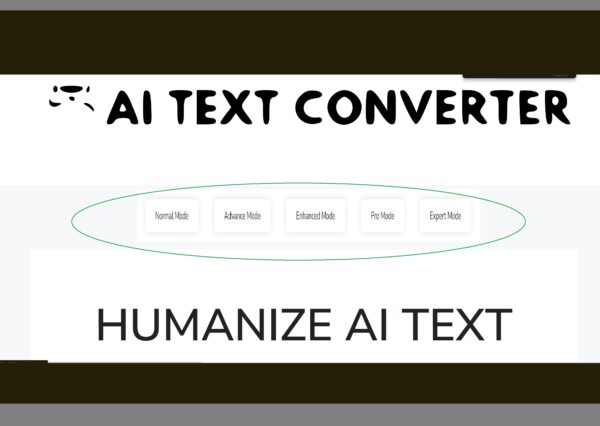



Leave a Reply
You must be logged in to post a comment.